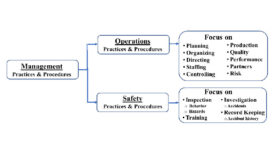Columns
Leading Safety
Attribution — a hidden risk factor
Read More
Best Practices
How to prepare for rise in cancer rates
Survey on work-related exposure in EU to be published this year
February 6, 2023
Breaching the C-suite
Powerful execs can be intimidating when it comes to safety
December 13, 2022
Leading Safety
Separating safety management from operations isn’t always beneficial
Issues occur within safety oversight
December 13, 2022
Editorial Comments
ISHN offers free CEU credits on a variety of workplace safety topics
December 13, 2022
Best Practices
Many OHS pros are being kept out of the loop with ADA management
December 13, 2022
Poorly-written job descriptions expose organizations to unnecessary risk
Consider these best practices to protect your company
December 1, 2022
Leading Safety
Employee engagement’s impact on safety
Engaged workers have fewer incidents, are less costly for employers
November 16, 2022
Never miss the latest news and trends driving the safety industry
eNewsletter | Website | eMagazine
JOIN TODAYCopyright ©2024. All Rights Reserved BNP Media.
Design, CMS, Hosting & Web Development :: ePublishing












